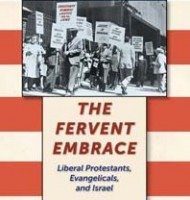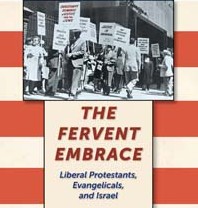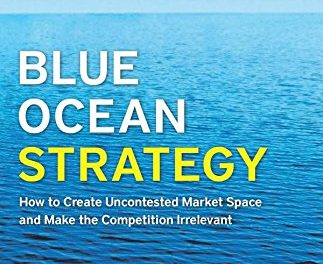 Book Review: The Fervent Embrace: Liberal Protestants, Evangelicals and Israel
Book Review: The Fervent Embrace: Liberal Protestants, Evangelicals and Israel
Author: Caitlin Carenen
Publisher: New York University Press
Book Review by: Paiso Jamakar
This book discusses the history of the relationship – including changing attitudes – between Jews and Christians and between Israel and the United States from the 1930s to around the end of the twenty-first century.
The author Caitlin Carenen, assistant professor of history at Eastern Connecticut State University, writes that this work “traces the divisions in American Protestantism over reactions to the Holocaust, the establishment of Israel (in 1948), and U.S. foreign policy toward Israel.”
Carenen points out that there has been, over the years, a “significant shift away from widespread anti-Semitism (antipathy towards Jews) among American Protestants toward a more friendly relationship” with the Jewish people and Israel.
This book covers the period between Hitler’s rise to power to the conclusion of George W. Bush’s presidency in the United States.
Extensive and intensive research has gone into the writing of this book. The strong, close-knit U.S.-Israel relationship did not come about by itself, a reading of this book reveals. It was the result of re-shaping of public opinion through the influence, various actions and lobbying efforts of various liberal leaders of Protestant denominations, particularly Baptists, Lutherans, Methodists and Presbyterians, writes Carenen.
Before the cementing of this close American-Israeli relationship, anti-Semitism prevailed among many Christians, the author points out. As a matter of fact, she writes that Protestant leaders have said that it was this anti-Semitism among Christians that led to the Holocaust – the worst genocide in the twentieth century.
The Holocaust led to the systematic killing of some six million European Jews during World War II in Nazi Germany, led by Adolf Hitler. This six million amounted to about two-thirds of the nine million Jews that had lived in Europe prior to the genocide.
(Wikipedia points out: “Some scholars maintain that the definition of the Holocaust should also include the Nazis’ genocide of millions of people in other groups, including Romani, leftists, Soviet prisoners of war, Polish and Soviet civilians, homosexuals, people with disabilities, Jehovah’s Witnesses and other political and religious opponents, which occurred regardless of whether they were of German or non-German ethnic origin.[8] This was the most common definition from the end of WWII to the 1960s.[8] Using this definition, the total number of Holocaust victims is between 11 million and 17 million people.”)
The destruction of such a large number of Jews necessitated massive support for their idea of creating a Jewish State – a place they could call their own and protect themselves from harm. The creation of the State of Israel was the essential embodiment of Zionism. The widespread support of Zionism by American Christians was the principal factor for the success of the declaration of Independence by Israel.
As a matter of fact, the author points out, it was only eleven minutes after Israel declared its independence on May 14, 1948 that President Harry S. Truman issued a memo recognizing that new independent state.
Careren quotes President Truman: “This Government has been informed that a Jewish state has been proclaimed in Palestine, and recognition has been requested by the provisional government thereof. The United States recognizes that provisional government as the de facto authority of the new State of Israel.”
The main thesis of this book is that from the days of the Holocaust to the present, the actions, attitudes, thoughts and views of American Christians in general and American Protestants in particular has changed from anti-Semitism to a “fervent embrace” of Jews and Israel.
Carenen writes that this embrace was “later appropriated by evangelical and fundamental Protestants to advance their own prophetic theology.” She adds that over the decades, “a powerful group of politically influential mainline Protestants supported the establishment of the State of Israel for humanitarian and geopolitical pragmatic reasons, and worked to create a strong U.S.-Israel alliance.”







